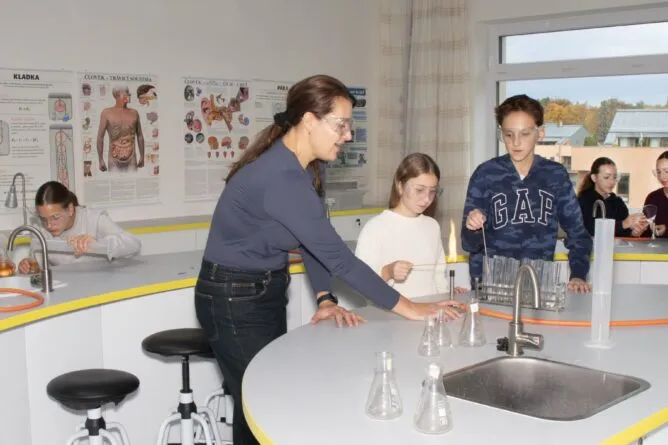We guide children from grades 1 to 9 on their journey toward overall personal development. We focus on the knowledge and skills that are key to success in the 21st century. Teaching is balanced and builds on the development of soft skills – cooperation, communication, presentation, problem solving, critical thinking, and civic responsibility. We develop these skills from first graders to secondary school students, not only in the classroom but also in everyday school life.
Our goal is not only to impart information, but also to teach students the ability to connect knowledge, think in context, and apply it in the real world. Key skills include language and mathematical-logical literacy, general knowledge, and the ability to work with information.

